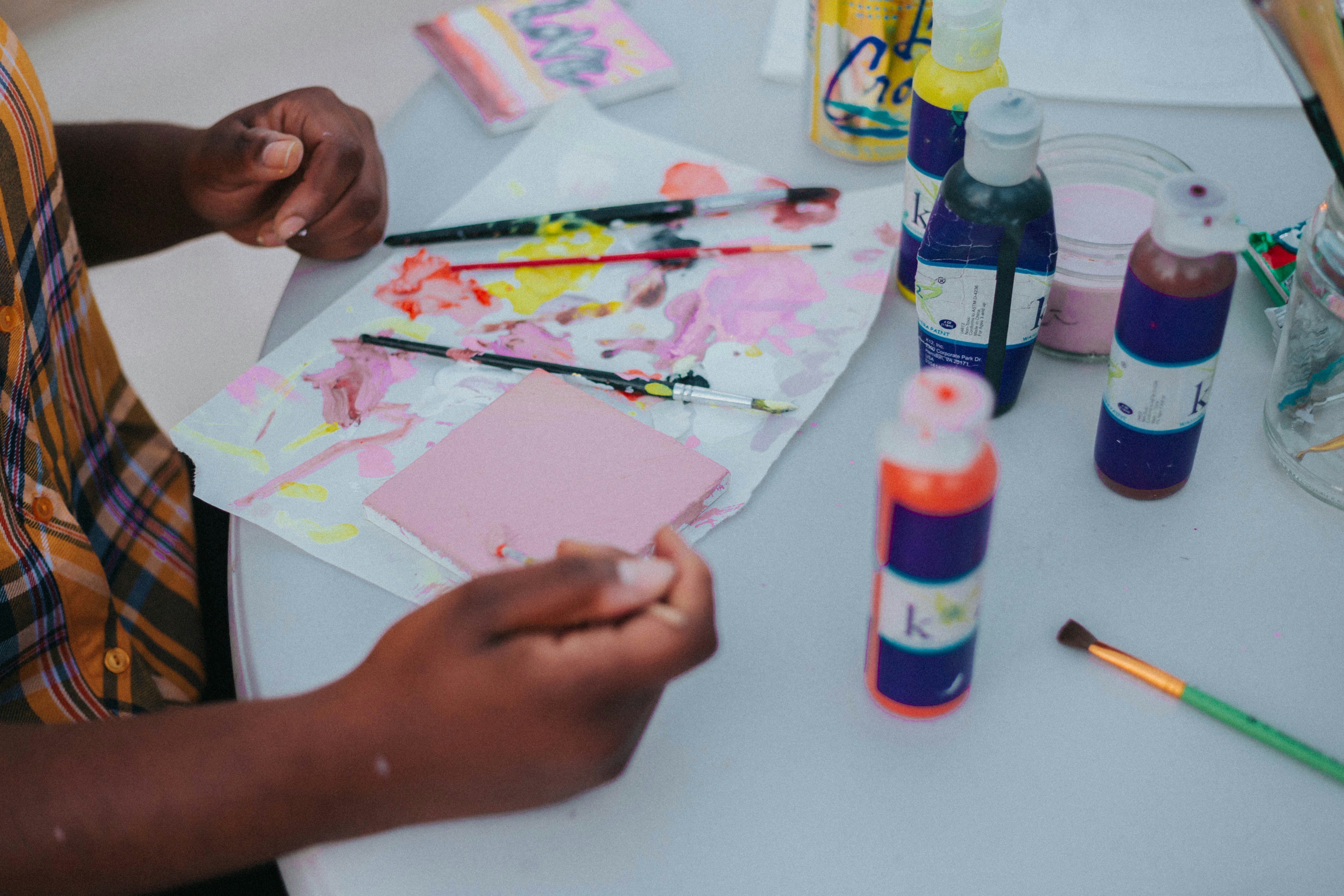
Let's dive into the power of creativity!
Amidst the pandemic, a surge in creative hobbies became a prevalent means for people to escape the constant barrage of bad news and to keep themselves occupied. However, the inclination towards the arts as a form of stress-relief outlet, wasn't merely coincidental. Research indicates that engaging in artistic activities is an effective method for stress reduction, enhanced focus, and bolstered self-esteem. Whether it's painting, dancing, writing, or making music, the various forms of art can contribute positively to ones mental health.
When feeling overwhelmed, I often turn to my collection of markers and pens, opening my colouring book to colour in my feelings. Rather than meticulously planning, I immerse myself in the process, choosing colours based on my emotions without worrying about achieving perfection in shapes or lines. Without thinking too much about what I am doing, I let my emotions lead the process, and the outcome is pleasantly surprising! Expressing my thoughts creatively on paper has always been a source of joy, aiding me in understanding my emotions better. Perhaps you've found solace in a similar way, whether through visual art, music, dance, or creative writing – any form of art can be a powerful tool for improving mental health.

Now, you don't need to label yourself as an artist to reap the benefits of art-making. The core concept of Art Therapy underscores that it's all about the process. By focusing on the meaning behind your art and the actions involved in creating it, you engage in a journey of self-discovery. The final product's appearance or sound is inconsequential, and there's no obligation to share it with others. The art is solely for your personal benefit. Embracing this perspective, free from comparisons with others, allows you to find peace and joy in the creative process.
Beyond personal fulfilment, engaging in creative activities has proven to reduce cortisol levels, the stress-inducing chemical in the body. Art becomes a valuable outlet for those dealing with emotional trauma or PTSD, offering a means to express pain and release emotions. Additionally, studies show that creating art boosts dopamine levels, often referred to as the "happiness hormone." Elevated dopamine levels can alleviate symptoms of anxiety and depression, establishing a positive feedback loop that encourages continued artistic expression.
Art's impact extends beyond the individual, fostering social connections. Whether creating art within a group or sharing one's work, art serves as a catalyst for social engagement. Research in the United Kingdom revealed that participants perceived their arts involvement as linked to feelings of social connectedness, significantly reducing loneliness. Art provides opportunities to meet like-minded individuals, offering a platform for learning from others.
Regardless of self-perceived artistic prowess, engaging in art in any form can be a powerful tool for mental health improvement. From stress reduction and increased happiness to social connections and self-discovery, the benefits of creative expression are manifold. So, why wait? Let's embark on the journey of making art!
If you need a boost see Fy!'s range of Motivational Quotes Art Prints heres.